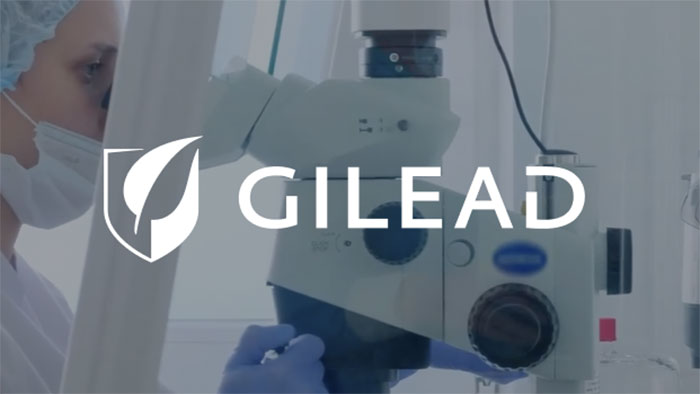4.5m
citizen records unified
50%
boost in data reliability
2,000
annual hours saved

Dallas County Health and Human Services needs accurate data to protect the health of its citizens. With Informatica MDM, it gains a reliable 360-degree view of public health for surveillance, reporting and investigation of over 100 diseases.
This was a lifechanging initiative for our organization and the citizens of Dallas. We needed to build more capacity, free up staff to do more epidemiological work, and combine our data into user-friendly dashboards, which could drive sound decision-making in the face of fast-shifting healthcare conditions.”

Better Health Decisions for Millions of Citizens
More than 2.6 million citizens across 31 municipalities rely on Dallas County Health and Human Services (DCHHS) to help secure their quality of life and protect them from disease. As a public health agency, DCHHS is responsible for tracking and reporting on diseases, immunizations, environmental health, and food safety. The agency also provides essential social services, from housing aid to the county’s Comprehensive Energy Assistance Program.
That’s no small feat, especially at the speed and scale with which public health conditions change in today’s world. “The decisions we make affect millions of people, so we can’t afford to work with inaccurate or unreliable data,” says DCHHS Director, Dr. Philip Huang.
The COVID-19 pandemic brought this reality to life for DCHHS, highlighting the importance of timely and accurate resident data to track, report, and manage the spread of life-threatening conditions.
When the disease hit, the agency was still using fax machines to collect citizen lab information and entering data into their systems manually. Huang’s team was inundated with thousands of cases via paper-based faxes and found themselves overwhelmed by the sheer volume of data.
Driven by a sense of urgency, the team set out to meet three objectives. The first was to manage rising data volumes without sacrificing the quality of public health decision-making. Secondly, the team wanted to run large-scale contact-tracing operations and help public health workers to better control the spread of disease. And finally, they aimed to accelerate disease investigation workflows to improve DCHHS’s response times.
“This was a lifechanging initiative for our organization and the citizens of Dallas,” says Huang. “We needed to build more capacity, free up staff to do more epidemiological work, and combine our data into user-friendly dashboards, which could drive sound decision-making in the face of fast-shifting healthcare conditions.”
“When people talk about healthcare, they typically think about the clinical side of the equation. But public health is just as fast-moving and complex, which is why technologies like AI will be indispensable for our organization. Working with partners like Informatica gives us the confidence that we can make the most of these innovations and continue improving the lives of our citizens each day.”
Building a Centralized Data Engine
The top priority for DCHHS was to power its disease surveillance and response efforts with trustworthy and timely data to identify trends across communities, populations and neighborhoods. It also needed to process and combine that data more efficiently and reliably. Before the agency’s transformation, staff would spend up to 15 hours per day just to eliminate redundant information and verify citizens’ address data.
With the help of Informatica Master Data Management (MDM), DCHHS created a centralized data engine for its entire organization. Today, this solution is known as the Dallas Disease Surveillance and Investigation System. Seamless integration with the DCHHS Salesforce instance provides business users with a comprehensive and authoritative data record for each person to support the business. During the COVID-19 pandemic alone, the organization added new data streams, including electronic lab data, hospital case reports from electronic health records, immunization data and mortality data to its business intelligence dashboards, using SFDC and CRM functionality.

By managing all domains of master data in a single SaaS solution, DCHHS realized there were many advantages to making that shift, including artificial intelligence (AI) capabilities, natural language processing and data profiling. In addition to integrating and improving the quality of DCHHS’ data, Informatica has improved the user experience for officials across the organization who rely on its data-driven services to power their decision-making.
“Our goal was to adopt first-rate offerings for every function in our data environment, and Informatica was selected for master data management,” says Huang. “With custom matching and merging capabilities we can combine our lab, immunization, mortality, case report data and more into a golden record we can trust.”
As a result, DCHHS’s data engine can ingest, validate, match, and merge records automatically using business rules developed by Huang and his team. It processes more than 4.5 million data points and can easily scale to match the agency’s growing data volumes. Similarly, data feeds are refreshed nightly to ensure teams work with timely and accurate information. DCHHS can increase this frequency when a public health situation calls for rapid analysis and decision-making.

Data-Driven Public Health Decisions Powered by MDM
At an operational level, DCHHS integrated several mission-critical healthcare systems, including Salesforce, the National Electronic Disease Surveillance System, the Texas immunization registry, and others into a single master data environment. By automating data ingestion, matching and merging of records from a variety of data sources, Huang and his team cut 2,000 hours of manual review per year from their workloads. To date, DCHHS has deduplicated 20% of all data involved in its contact tracing integrations and manual entries, while automated matching and merging rules have improved the reliability of its most critical data elements by 50%.
A single source of truth provides DCHHS with a 360-degree view of the public health trends of Dallas County residents, including their data history. That comprehensive understanding allows DCHHS to respond more swiftly and effectively when faced with time-sensitive public health situations.
It also drives better decision-making as the agency expands its implementation and pursues its longer-term goals. For example, when Africa experienced recent outbreaks of Ebola and Mpox in 2022, DCHHS expanded its centralized data environment to monitor return travelers from the region. The system now covers more than 120 reportable conditions, and the agency expects it to include every reportable condition by July of 2024.
Huang and his team continue to explore new features in their Informatica MDM environment. From improved data profiling to the use of artificial Intelligence and natural language processing to accelerate business decision-making, they are laser-focused on modernizing Dallas-based public health services for each citizen, and for every possible future.
A Model of Public Health Contact Tracing and Reporting
Huang and his team have established DCHHS as a model of public health reporting at the state and national level. The data dashboards posted on its website during the COVID-19 pandemic became a crucial reference for the public. DCHHS also began linking these reference pages to other services and educational content to help keep the public as informed and safe as possible.
The data visualizations that DCHHS presented to the Dallas County Commissioners informed the county’s response to the disease every step of the way. “There were literally trillions of dollars' worth of public health decisions made using public health data during the COVID-19 pandemic, at the federal, state and local levels. Everyone was looking at our numbers and seeing if cases were going up or down and identifying who was being most impacted. Informatica played a big role in our success,” says Huang.

Today, DCHHHS is working with a team at the University of Texas at Austin, one of 13 funded CDC sites working to combine data from the country’s most advanced healthcare systems to improve forecasting and help public health institutions better respond to threats.
The agency was also recognized by the Healthcare Information and Management Systems Society (HIMSS) in 2023. Their prestigious Davies Award honors public health organizations that leverage data and technology to enhance their core services and drive faster, more actionable intelligence to improve community health.

Powering AI Analyses in the Cloud
DCHHS is now migrating its hosted Informatica environment to the cloud to support more complex forms of data analysis. For example, the ability to quickly profile data coming into its organization and create rules for data transformation and standardization will help ensure the highest standard of data quality and governance.
Huang and his team are also exploring how to leverage the AI capabilities of the Informatica system for file ingestion mapping and entity recognition. The ability to query data with natural language will make analyses more accessible to additional DCHHS epidemiologists, who won’t require in-depth knowledge of SQL programming to run their numbers. The time savings delivered by AI promise to accelerate processes from data classification to discovery, as well as the gleaning of insights, making DCHHS more productive and effective.
“When people talk about healthcare, they typically think about the clinical side of the equation. But public health is just as fast-moving and complex, which is why technologies like AI will be indispensable for our organization,” says Huang. “Working with partners like Informatica gives us the confidence that we can make the most of these innovations and continue improving the lives of our citizens each day.”
Inside the solution
Accelerate your multi-cloud foundation powered by IDMC
More Success Stories

CNA connects and protects its data in the cloud

Franciscan Alliance Delivers Trusted Analytics to Improve Decision Making

Yamaha revs business in the cloud
Experience the world’s most comprehensive Intelligent Data Management Cloud.




